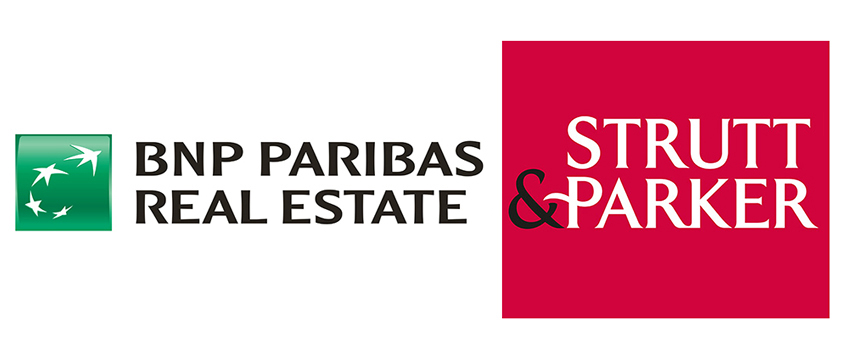The takeover: Martin’s cultural challenge with BNP PRE and Strutts
It’s hard to think of two property brands that are more chalk and cheese than Strutt & Parker and BNP Paribas Real Estate. One is a traditional equity partnership with roots in rural land. The other is a corporate subsidiary of a French bank.
Yesterday’s confirmation that the two are merging begs the question: do these differences represent a promising synergy of complementary opposites, or a corporate culture clash?
As they attempt to integrate Strutts’ 1,000-strong workforce with 500 staff at BNP Paribas Real Estate, from disciplines as diverse as agricultural land management to City leasing, Strutts’ soon-to-be new owners have already taken precautionary measures.
It’s hard to think of two property brands that are more chalk and cheese than Strutt & Parker and BNP Paribas Real Estate. One is a traditional equity partnership with roots in rural land. The other is a corporate subsidiary of a French bank.
Yesterday’s confirmation that the two are merging begs the question: do these differences represent a promising synergy of complementary opposites, or a corporate culture clash?
As they attempt to integrate Strutts’ 1,000-strong workforce with 500 staff at BNP Paribas Real Estate, from disciplines as diverse as agricultural land management to City leasing, Strutts’ soon-to-be new owners have already taken precautionary measures.
They have agreed to retain the Strutts brand for all but the commercial business, effectively conceding that the BNP name, primarily associated with lending on the Continent, does not carry the same weight as Strutts’ brand over here.
They are also appointing highly-regarded managing partner Andy Martin as chief executive, replacing incumbent John Slade and warding off Martin’s no-longer-obligatory early retirement; with more than 30 years under his belt at Strutts, Martin is arguably a safe pair of hands to take the business forward.
After months of speculation about the future of his firm, Martin finally broke cover for the first time yesterday, saying: “I am very keen on the idea of uniting our brand with the strength of BNP Paribas Real Estate.
“It gives us a distinguishing feature and a new impetus in a constantly evolving global market. I have been impressed by the respect that they have shown for our values, and by their emphasis on the relationship with employees and clients across all our business sectors.
“This merger not only creates attractive commercial real estate opportunities, but also opens up new prospects in the rural and residential sectors thanks to the size and strength of the group that we are creating together.”
A statement from BNP Paribas Real Estate said: “The expertise of Strutt & Parker, the second-biggest player in the UK rural market and third in residential, will represent a new service offering for the UK subsidiary of BNP Paribas Real Estate, thereby enabling it to broaden its range of services.”
On the face of it, clients may not see a huge difference in the ways the merged firms operate.
Having presided over the integration of Drivers Jonas into Deloitte in 2010, Nick Shepherd, now a non-executive board member at McKay Securities, said: “At McKay Securities, we use Strutt & Parker a considerable amount – particularly its M3 and M25 agency and investment teams – and I can’t see how this merger would change our relationship with them in the future.”
However, Shepherd also knows about the cultural challenges of absorbing agency teams into non-real estate businesses. Last year, the transactional side of the Deloitte Real Estate business had to be sold – four years after Shepherd’s departure – owing to conflicts with the auditing division.
Although Strutts is merging with a bank rather than an accountancy firm, people within both firms are nervous about culture clash.
One Strutts commercial partner, on being asked about the prospect of his team being rebranded as BNP Paribas Real Estate, answered that the subject was “too close to the bone”.
The relative autonomy of 53 equity partners being allowed to make decisions about their firm’s future will certainly be in sharp contrast to the obligations of quarterly reporting and analytical scrutiny required by a giant bank listed in Paris.
A senior source in the London commercial division at BNP Paribas Real Estate said: “I don’t think it’s going to be easy at all. They’re going to have to work very bloody hard to keep everyone together.
“Some of the work Strutts does is incredibly personalised. They tend to be more British than the British. The thought that they are now owned by a French bank is going to be very odd.”
But the equity partners were racking up a significant pension deficit – a liability that has now been soaked up by the French bank’s balance sheet – and people lower down the firm will now have to adjust to a life without the prospect of equity partnership ahead of them.
When BNP PRE UK chief executive Slade was appointed in 2012, he became notorious for handing out large remuneration packages in an attempt to attract talent and scale up the business rapidly.
With Slade now moving aside five years on, that scaling-up is arguably taken care of through acquisition, although the challenge for Martin now will be to capitalise on its status as one of the top five UK agencies by turnover and to sustain future growth.
On the residential side at least, JLL proved with its purchase of King Sturge that it was possible to integrate a UK equity partnership into a global business.
Whether or not a French bank can pull off a similar trick will depend on Martin and how he discharges some difficult management responsibilities in his attempt to harmonise Strutts’ and BNP PRE’s radically different cultures.
To send feedback, e-mail nick.johnstone@egi.co.uk or tweet @n_johnstone or @estatesgazette











